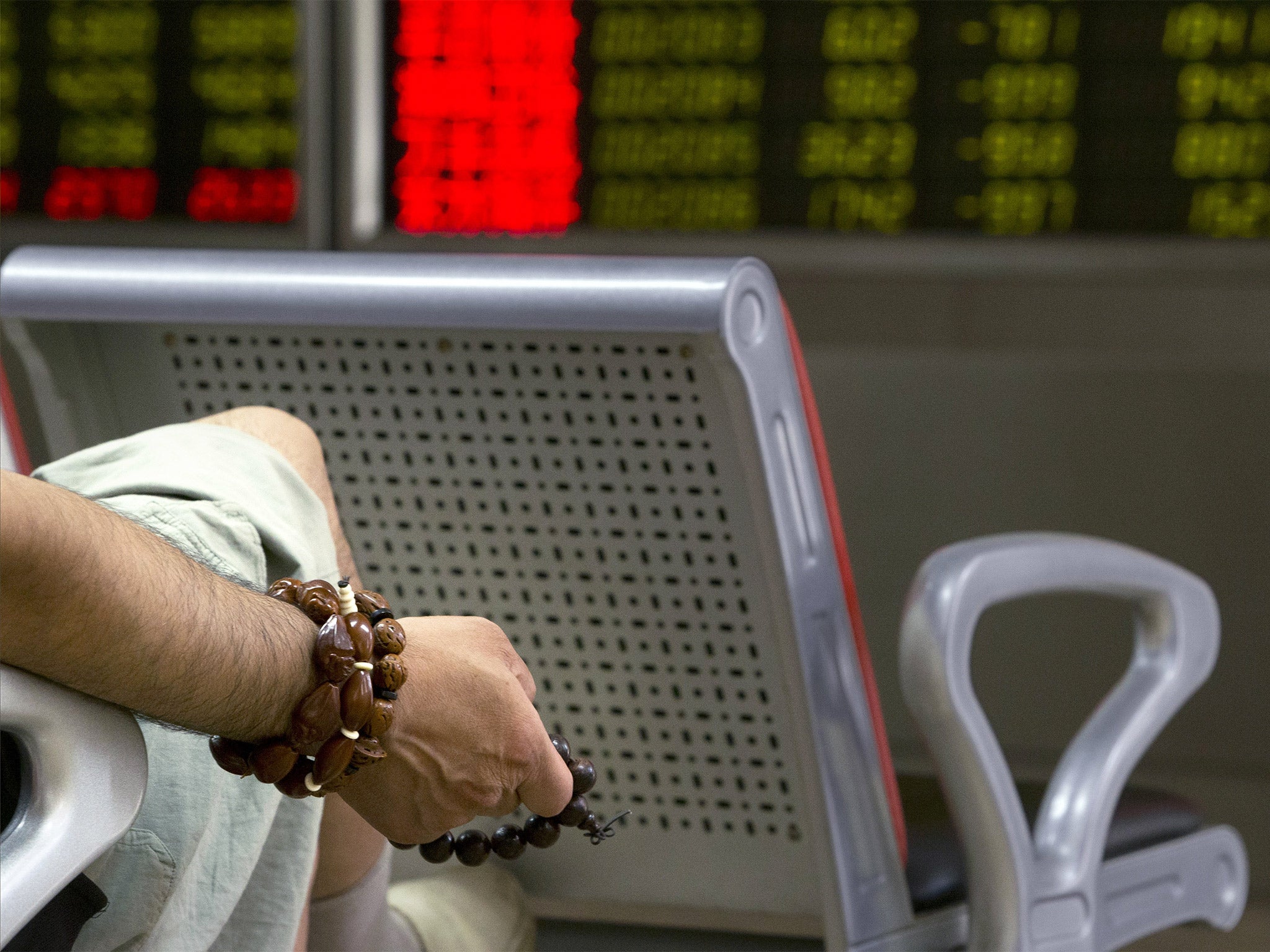We fear China's growing power. But it is morally reprehensible to celebrate the country's woes
A large proportion of of the world's poor live within its borders

With the Chinese economic miracle coming to an end, as shown by "Black Monday" and the devaluation of the renminbi, one can feel a sense of relief in the West about this unexpected turn of events. After all, most predictions indicated the Chinese economy would be able to overtake the US economy in the years to come. Political power would soon follow – the Chinese would "rule the world", as some experts predicted. They would "buy up Europe", the think-tank ECFR argued, after having already gobbled up chunks of Africa.
A rising China was something to be feared, according to China-bashers. Low pay and poor working conditions would await us, as European workers in the Greek port of Piraeus and the Italian textile industry of Prato, both dominated by Chinese investors, already can testify. In the long run our most fundamental values (human rights, democracy) might even be undermined as a result of the economic power of a country whose leaders show little respect and even contempt for these values.
This analysis might seem over the top, but it is harder to counter the argument that China under its leader Xi Jinping has taken a course in the past three years which is at odds with western values. The infamous "Document no. 9", adopted by the Central Committee of the CCP in 2013, views "universal values" as the West defends them as an attempt to weaken China. Within its own borders, the Chinese authorities have increased repression of human rights activists, Tibetan nationalists and dissidents. Censorship on the internet and in the media is rising.
Internationally, China has taken up the habit of teaming up with Russia in the Security Council against the West, hindering a solution to the Syrian civil war, for instance. In its own region China's new assertiveness, shown by its island-building activities and propped up by its increasing military strength, has brought fear to neighbouring countries. So how could we not feel secretly relieved about China's economic setbacks and the apparent end to their enviable growth era? China's economic misfortunes might not be so bad – it might tone down their increasing arrogance, one could be inclined to think.
In reality, China's economic downturn will be far from beneficial to the West. Our interdependency is currently illustrated by the downturn of European stock markets in the wake of the collapse of the Shanghai Index. Ask American and European corporate leaders who have been able to sustain their profits in recent, difficult years thanks to excellent results in China.
Their biggest worry today is that China - despite a slight uptick - will not be able to stabilize its economy. A further slide might force CEOs of a wide variety of sectors (car makers, producers of luxury goods, industrial good companies) to cut jobs, both in China and at home. A large number of western small and medium size companies will suffer equally, as their exports to the Chinese market decline. Given the fact that China has contributed more than a third of global growth since 2008 the impact will be broad. If the country can no longer perform its role as engine of the world economy, job losses in the West are inevitable.
Apart from this rather selfish reason to wish China more economic health, it is important to note that China still has the largest number of poor people in the world, after India, despite decades of growth.
From that perspective any feeling of relief about China's woes is morally rather reprehensible. Not to mention the situation concerning human rights in China. True, its economic success did little to improve the plight of human rights activists, dissidents and others, but it is not hard to predict that an economic downturn will be even more unfavorable to them.
The Chinese population as a whole will be confronted with rising unemployment, increasing social tensions in an already tense country. Official unemployment figures do not reflect this and remain low (at 4 per cent for urban unemployment) but cannot be trusted. Certainly, unemployment will rise, if the economic downturn persists. That would be an ominous development, not only within China, but also for its foreign policy. When economic trouble becomes really serious, deflecting attention to an enemy abroad might become tempting for China's leadership. Such 'wagging the dog', starting an international conflict for internal reasons, could lead to disruption of trade flows around the world that would damage western interests even more. Therefore, think twice before getting gleeful about China's demise.
Fokke Obbema is author of 'China and the West, Hope and Fear in the Age of Asia' (IB Tauris, September 2015)
Join our commenting forum
Join thought-provoking conversations, follow other Independent readers and see their replies
Comments